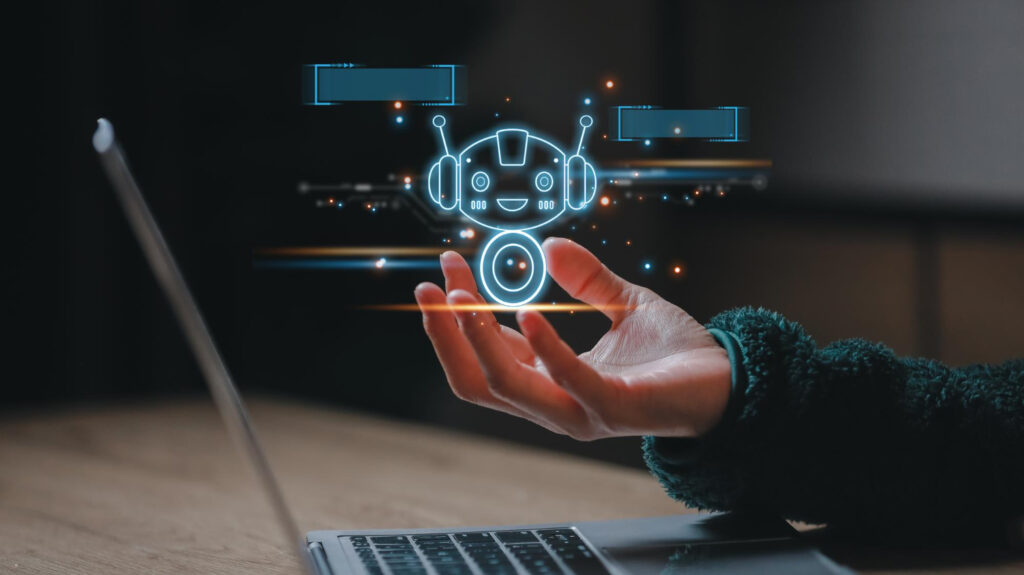In the world of software development, making sure that programs work smoothly is crucial. Imagine releasing a new app or website only to find out it crashes or has bugs, definitely not a good experience for users. That’s where testing as a service comes in.
Software testing is the process of checking and rechecking code to catch any errors before they cause user problems. It is super important in today’s world where the cost of fixing a bug post-release could be 30 times more.
But now, imagine if we could make this testing process even better by using artificial intelligence.
That’s exactly what AI-powered testing does.
In this blog, we’ll take a closer look at how AI is revolutionizing Testing as a Service. Therefore, by the end of this article, you will have a clear understanding about:
- Testing as a Service (TaaS)
- What is AI-powered testing?
- Role of AI in enhancing TaaS offerings
- Benefits of AI-Powered Testing as a Service
- Real-world Applications
Introduction to Testing as a Service

Testing as a Service (TaaS) is a cloud-based model that provides testing services on-demand to organizations without the need for in-house testing infrastructure.
Testing as a Service allows businesses to outsource their testing needs to specialized third-party providers who offer a range of testing services. These include:
- Functional testing,
- Performance testing,
- Security testing, and more.
In short, it’s a way for companies to get their software tested without having to set up everything themselves. As a result, this model enables faster time-to-market for software products and allows organizations to focus on their core competencies.
What is AI-powered testing as a service?

AI-powered testing as a service is like having a super-smart assistant helping you check your work, but with an added bonus, it’s available anytime, and anywhere. In simple words, it uses artificial intelligence to make the testing process even smarter and more efficient.
So, how does it work? Well, imagine you’re testing a new app, but instead of doing all the work yourself, you can rely on AI-powered testing as a service. AI can analyze the app’s code and figure out where potential problems might be hiding. Then, it can create tests to check those areas automatically. Thus, saving time and effort for you.
But what makes AI-powered testing as a service stand out?
Unlike traditional testing services, which may require manual intervention and limited availability, AI-powered testing as a service operates round-the-clock.
Moreover, it can scale up or down based on your needs. Additionally, it’s not just about finding bugs, it’s about predicting and preventing them before they even happen.
Role of AI in Enhancing Testing as a Service Offerings
As organizations look for ways to improve their software testing processes, AI-powered testing as a service (TaaS) emerges as a powerful solution. Here’s how AI enhances TaaS offerings:
- Intelligent Test Case Generation
AI acts like a smart detective, sniffing out potential problems in software code. With intelligent test case generation, AI can analyze vast amounts of code and automatically generate test cases to cover all possible scenarios. As a result, it leads to fewer manual tests and more comprehensive coverage.
- Predictive Analytics for Defect Detection
Imagine having a crystal ball that predicts future problems in software. AI-powered predictive analytics do just that. By analyzing historical data and patterns, AI can anticipate where defects are likely to occur and flag them before they become major issues.
Therefore, this proactive approach helps developers fix problems early on, reducing the risk of costly errors down the line.
- Continuous Improvement through Machine Learning
For those of you who don’t know, Machine learning is similar to having a personal trainer for your software testing process. AI-powered TaaS solutions, with the help of machine learning, can continuously learn from past tests and outcomes. Thus, this improves their performance over time.
Moreover, by identifying trends and patterns, AI can adapt testing strategies to become more effective and efficient.
- Automated Test Execution and Regression Testing
AI is not a human, therefore, it never gets tired of running tests. With automated test execution, AI in software testing can execute tests quickly and accurately. Moreover, regression testing, which ensures that new updates don’t break existing functionality, becomes a breeze with AI’s ability to rerun tests automatically and identify any regressions.
Benefits of AI-Powered Testing as a Service
The Advantages of AI-Powered Testing as a Service
As we delve deeper into the advantages of artificial intelligence in software testing, it becomes clear how this innovative approach transforms software testing. Here are some of the key benefits organizations can expect:
- Enhanced Efficiency and Speed
AI-powered testing as a service is a turbo boost for software testing processes. By leveraging the speed of AI algorithms and automating repetitive tasks, it complete testing cycles much faster compared to traditional methods. As a result, this leads to quicker feedback on software quality and accelerated time-to-market for new releases.
- Improved Test Coverage
With AI’s ability to analyze vast amounts of data and identify potential risks, AI-powered testing as a service provides more comprehensive test coverage. It can create test cases for diverse scenarios.
Thus, it ensures that all critical functionalities are thoroughly tested. As a result, this reduces the likelihood of undetected defects slipping through the cracks and reaching end-users.
- Cost Savings
AI-powered testing as a service offers significant cost savings compared to manual testing or traditional testing services. By automating tasks that would otherwise require human intervention, such as test case generation and execution, organizations can reduce the need for large testing teams.
Additionally, the efficiency of AI-driven testing means fewer resources are wasted on repetitive tasks, further optimizing costs.
- Enhanced Accuracy and Reliability
Human testers are prone to errors and inconsistencies, but AI software testing tools offers a higher level of accuracy and reliability. AI algorithms can execute tests with precision, ensuring consistent results across different testing environments and iterations.
Thus, this reduces the risk of false positives or negatives, providing more reliable insights into the software’s quality and performance.
- Scalability and Flexibility
AI testing services offer scalability and flexibility to adapt to changing project requirements and workload demands. Whether it’s scaling up testing efforts for a major release or scaling down during quieter periods, AI-driven solutions can dynamically allocate resources to meet the needs of the project.
As a result, this flexibility allows organizations to optimize testing efforts according to their budget and timeline constraints.
Real-world Applications of AI-powered testing as a service
AI-Powered Testing in Action: Real-World Applications
AI-powered testing as a service is transforming various industries by providing faster, more accurate, and more efficient testing solutions. Here are some real-world examples of how different sectors are benefiting from this innovative approach:
- Banking and Finance Industry
In the banking and finance industry, reliability and security are paramount. AI-powered testing as a service is used to ensure the robustness of banking software. These include:
- Mobile banking apps,
- Online payment systems, and
- Trading platforms.
For example, JPMorgan Chase, one of the largest banks globally, employs AI-powered testing to enhance the quality and security of its digital banking platforms. JPMorgan Chase safeguards customer data and maintains regulatory compliance by automating testing processes. Moreover, it leverages AI algorithms to detect potential vulnerabilities.
- E-commerce Platforms
E-commerce platforms rely on seamless user experiences to drive sales and customer satisfaction. These companies utilize AI-powered testing as a service to test the functionality, performance, and usability of e-commerce websites and mobile apps.
Take Amazon, the world’s largest online retailer, for example. Amazon leverages AI-driven testing solutions to continuously validate the performance of its e-commerce platform. As a result, it ensures a smooth shopping experience for millions of customers worldwide.
- Automotive Industry
In the automotive industry, software plays an increasingly important role in vehicle functionality, safety, and connectivity. AI-powered testing as a service is applied to automotive software systems, including:
- In-vehicle infotainment systems,
- Advanced driver assistance systems (ADAS), and
- Autonomous driving technology.
Tesla, a pioneer in electric vehicles and autonomous driving technology, employs AI-driven testing solutions to validate the performance and reliability of its vehicle software. By conducting comprehensive testing, Tesla ensures the safety and functionality of its vehicles on the road. Thus, it is driving innovation in the automotive industry.
How can organizations implement AI-powered testing as a service?
Implementing AI-Powered Testing: A Guide for Organizations
Implementing AI-powered testing as a service requires careful planning and execution. Here’s how organizations can go about it:
Assess Current Testing Processes:
- Firstly, evaluate existing testing processes and identify areas where AI-powered testing can add value.
- Determine the specific goals and objectives for implementing AI-powered testing.
Research AI-Powered Testing Tools:
- Explore available AI-powered testing tools and solutions in the market.
- Moreover, consider factors such as features, compatibility with existing systems, and vendor reputation.
Pilot Testing:
- Conduct pilot testing of selected AI-powered testing as a service tool on a small scale to assess their effectiveness.
- Additionally, gather feedback from testers and stakeholders to identify any challenges or areas for improvement.
Integration with Existing Systems:
- Integrate AI-powered testing tools with existing testing frameworks and software development workflows.
- Moreover, ensures seamless collaboration between testing teams, developers, and other stakeholders.
How Can Partnering with AdvansAppz Simplify Testing as a Service Implementation?

advansappz, an IT company specializing in software testing and quality assurance, can play a crucial role in implementing AI-powered testing as a service. Here’s how they can help:
- Expertise in AI-Powered Testing: advansappz has deep expertise in AI-powered testing methodologies and tools. They can provide guidance on selecting the right tools and strategies for implementing AI-powered testing in organizations.
- Customized Solutions: advansappz can tailor AI-powered testing solutions to meet the specific needs and requirements of organizations. They can design customized solutions to optimize testing processes, whether it’s automated test case generation, predictive analytics, or continuous improvement through machine learning.
- Training and Support: advansappz offers comprehensive training and support services to help organizations integrate AI-powered testing into their workflows. From initial setup to ongoing maintenance and optimization, they ensure that testing teams have the knowledge and resources they need to succeed.
Therefore, by partnering with advansappz, organizations can leverage their expertise and experience to accelerate the adoption of AI-powered testing as a service.
Conclusion
In conclusion, AI-powered testing as a service marks a significant advancement in software testing.
Real-world examples from companies like JPMorgan Chase, Amazon, and Tesla demonstrate the tangible impact of software testing and artificial intelligence coming together.
As organizations continue to adopt AI-powered testing solutions, they can expect higher-quality software, faster release cycles, and improved customer satisfaction.
With its ability to automate tasks, predict defects, and continuously learn and adapt, AI-powered testing as a service is poised to revolutionize the software development landscape for years to come.
FAQs about AI-powered Testing as a Service
- What is the future of AI testing?
The future of AI testing is exciting. It means faster and smarter testing for software. Moreover, with AI, computers will continue to learn from mistakes and find bugs better. Thus, making software safer and better for everyone.
- How is AI used in QA testing?
AI helps QA testing by finding problems in software and suggesting ways to fix them. It’s like having a super-smart assistant that makes sure the software works perfectly. With AI, software can be more reliable and work better for users.
- How does AI-powered testing differ from traditional testing methods?
AI-powered testing as a service automates many tasks that humans would usually do manually. It can analyze lots of data quickly and find potential problems in software, making testing more thorough and reliable.
- Can AI-powered testing as a service be used in different industries?
Yes, AI-powered testing is versatile and can be applied in various industries such as banking, healthcare, e-commerce, and automotive.
- How quickly can AI-powered testing be implemented?
The implementation time can vary, but AI-powered testing tools are designed to integrate smoothly with existing processes. With the help of experts like advansappz, it can be set up relatively quickly.












